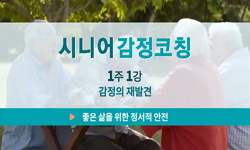The purpose of this study was to examine the effects of self-concept clarity and self-silencing on the relationship between self-criticism and depression. We predicted self-silencing would function as a mediator in this relationship, and that self-con...
http://chineseinput.net/에서 pinyin(병음)방식으로 중국어를 변환할 수 있습니다.
변환된 중국어를 복사하여 사용하시면 됩니다.
- 中文 을 입력하시려면 zhongwen을 입력하시고 space를누르시면됩니다.
- 北京 을 입력하시려면 beijing을 입력하시고 space를 누르시면 됩니다.

대학생의 자기비난과 자기침묵이 우울에 미치는 영향: 자기개념 명확성의 조절된 매개효과 = The Influence of Self-Criticism and Self-Silencing on Depression in University Students: The Moderated Mediating Effect of Self-Concept Clarity
한글로보기https://www.riss.kr/link?id=A106055364
- 저자
- 발행기관
- 학술지명
- 권호사항
-
발행연도
2019
-
작성언어
Korean
-
주제어
self-criticism ; self-silencing ; self-concept clarity ; depression ; 자기비난 ; 자기침묵 ; 자기개념 명확성 ; 우울
-
등재정보
KCI등재
-
자료형태
학술저널
-
수록면
263-282(20쪽)
-
KCI 피인용횟수
1
- DOI식별코드
- 제공처
- 소장기관
-
0
상세조회 -
0
다운로드
부가정보
다국어 초록 (Multilingual Abstract)
The purpose of this study was to examine the effects of self-concept clarity and self-silencing on the relationship between self-criticism and depression. We predicted self-silencing would function as a mediator in this relationship, and that self-concept clarity would moderate this mediation effect. To investigate this aim, 481 university students were surveyed. All variables showed statistically significant correlations, and after verifying the moderating effect of self-concept clarity on depression, there was no statistically significant difference in the moderating effect of self-concept clarity in the relationship with self-criticism and depression. Conversely, this study showed that there was a significant difference in the moderating effect of self-concept clarity in the relationship with self-silencing and depression. In addition, self-criticism affected depression through self-silencing, and self-concept clarity moderated the mediating effect of self-silencing. Implications and potential follow-up studies are discussed.
국문 초록 (Abstract)
본 연구는 대학생을 대상으로 자기비난과 우울의 관계에서 자기침묵의 매개효과를 검증하고, 이러한 자기침묵의 매개효과가 우울에 영향을 미치는 경로에서 자기개념 명확성의 조절된 매...
본 연구는 대학생을 대상으로 자기비난과 우울의 관계에서 자기침묵의 매개효과를 검증하고, 이러한 자기침묵의 매개효과가 우울에 영향을 미치는 경로에서 자기개념 명확성의 조절된 매개효과를 검증하고자 하였다. 이를 위해 대학생 481명을 대상으로 설문을 실시하여 조절된 매개모형을 분석하였다. 그 결과 각 변인들 간에 유의미한 상관관계를 나타내었으며, 우울에 대한 자기개념 명확성의 조절효과 검증 결과 자기비난과 우울의 관계에서 자기개념 명확성의 조절효과는 유의하지 않은 것으로 나타난 반면, 자기침묵과 우울의 관계에서 자기개념 명확성의 조절효과는 유의한 것으로 나타났다. 또한 자기비난은 자기침묵을 통해 우울에 영향을 미치며, 이러한 경로에서 자기개념 명확성은 자기침묵의 매개효과를 조절하는 것으로 나타났다. 즉 자기개념 명확성이 높을 때는 자기비난이 자기침묵을 통해 우울을 야기하는 매개효과가 완화됨으로 우울이 감소하는 것으로 나타났다. 이는 자기비난이 자기침묵을 매개로 우울이 야기될 때, 자기개념 명확성을 높여주는 것이 효과적임을 의미한다. 이러한 결과를 바탕으로 본 연구의 시사점과 후속 연구를 위한 제언을 논의하였다.
참고문헌 (Reference)
1 정선호, "회귀분석을 이용한 매개된 조절효과와 조절된 매개효과 검증 방법" 한국심리학회 35 (35): 257-282, 2016
2 권석만, "현대 이상심리학" 학지사 2013
3 金大翼, "한국인의 자아개념 명료성에 대한 연구 : 성격,자의식,행동의 관계를 중심으로" 中央大學校 大學院 1998
4 통계청, "한국의 사회동향 2015" 통계청 2015
5 전겸구, "통합적 한국판 CES-D 개발" 6 (6): 59-76, 2001
6 강석, "청소년의 실제-이상 자기불일치가 우울에 미치는 영향: 자의식과 자기침묵의 매개 효과" 사범대학부속중등교육연구소 61 (61): 811-839, 2013
7 김미주, "지각된 어머니의 심리통제가 대학생의 우울에 미치는 영향: 자기개념 명료성과 자기침묵의 매개효과 검증" 가톨릭대학교 대학원 2015
8 권희영, "중학생의 내현적 자기애와 우울과의 관계: 자기비난과 수치심의 매개효과" 한국상담심리학회 22 (22): 1023-1048, 2010
9 김명화, "자기침묵이 대인관계에 미치는 영향: 우울의 매개효과 검증" 한국심리학회 30 (30): 69-97, 2011
10 曺載任, "우울의 두 차원에 관한 연구" 高麗大學校 大學院 1997
1 정선호, "회귀분석을 이용한 매개된 조절효과와 조절된 매개효과 검증 방법" 한국심리학회 35 (35): 257-282, 2016
2 권석만, "현대 이상심리학" 학지사 2013
3 金大翼, "한국인의 자아개념 명료성에 대한 연구 : 성격,자의식,행동의 관계를 중심으로" 中央大學校 大學院 1998
4 통계청, "한국의 사회동향 2015" 통계청 2015
5 전겸구, "통합적 한국판 CES-D 개발" 6 (6): 59-76, 2001
6 강석, "청소년의 실제-이상 자기불일치가 우울에 미치는 영향: 자의식과 자기침묵의 매개 효과" 사범대학부속중등교육연구소 61 (61): 811-839, 2013
7 김미주, "지각된 어머니의 심리통제가 대학생의 우울에 미치는 영향: 자기개념 명료성과 자기침묵의 매개효과 검증" 가톨릭대학교 대학원 2015
8 권희영, "중학생의 내현적 자기애와 우울과의 관계: 자기비난과 수치심의 매개효과" 한국상담심리학회 22 (22): 1023-1048, 2010
9 김명화, "자기침묵이 대인관계에 미치는 영향: 우울의 매개효과 검증" 한국심리학회 30 (30): 69-97, 2011
10 曺載任, "우울의 두 차원에 관한 연구" 高麗大學校 大學院 1997
11 김미진, "여대생의 자기침묵과 우울과의 관계에서 정서표현에 대한 양가성과 정서인식명확성의 매개효과" 이화여자대학교 대학원 2009
12 신민섭, "스마트폰 기반 장·노년용 기억력 훈련 프로그램의 인지기능 향상 효과: 예비 연구" 한국건강심리학회 20 (20): 855-872, 2015
13 이선혜, "대학생의 정신건강 원조체계 활용 행태 정신건강서비스 활성화에 대한 함의" 한국정신건강사회복지학회 (13) : 36-58, 2002
14 김혜령, "대학생의 자기비판적, 의존적 우울취약성과 대인관계문제의 관계" 이화여자대학교 대학원 2016
15 김현진, "대학생의 우울 취약성과 자의식이 대인관계에 미치는 영향" 한국상담심리학회 16 (16): 277-294, 2004
16 이새싹, "대학생의 완벽주의적 자기제시와 우울의 관계" 가톨릭대학교 대학원 2016
17 권이정, "대학생의 완벽주의와 우울 간의 관계 : 마음챙김, 자기비난의 매개효과" 경북대학교 대학원 2010
18 김정미, "대학생의 스트레스와 우울의 관계에서 자기비난 및 의존성의 역할 : 대구지역 대학생을 중심으로" 한국청소년정책연구원 20 (20): 283-306, 2009
19 신수진, "대학생의 불확실성에 대한 인내력 부족과 불안의 관계: 정서인식명확성과 자기개념명확성의 조절효과" 미래를 여는 청소년학회 11 (11): 95-116, 2014
20 김효정, "대학생의 내현적 자기애와 우울 간의 관계 : 분노억제와 자기비난의 매개효과" 경북대학교 대학원 2011
21 이문선, "내현적 자기애와 사회적으로 부과된 완벽주의의 관계에서 수치심과 자기비난의 매개효과" 한국상담심리학회 26 (26): 973-992, 2014
22 Swann, W. B., "When our identities are mistaken: Reaffirming self-conceptions through social interaction" 43 (43): 59-66, 1982
23 Muller, D., "When moderation is mediated and mediation is moderated" 89 (89): 852-863, 2005
24 Stucke, T. S., "When a grandiose self‐image is threatened: Narcissism and self‐concept clarity as predictors of negative emotions and aggression following ego‐threat" 70 (70): 509-532, 2002
25 Blatt, S. J., "Two primary configurations of psychopathology" 6 (6): 187-254, 1983
26 Campbell, J. D., "The structure of the self‐concept and its relation to psychological adjustment" 71 (71): 115-140, 2003
27 Jack, D. C., "The silencing the self scale: Schemas of intimacy associated with depression in women" 16 (16): 97-106, 1992
28 Abela, J. R., "The role of self-criticism, dependency, and hassles in the course of depressive illness: A multiwave longitudinal study" 32 (32): 328-338, 2006
29 Baron, R. M., "The moderator-mediator variable distinction in social psychological research: Conceptual, strategic, and statistical considerations" 51 (51): 1173-1182, 1986
30 Bigler, M., "The divided self revisited: Effects of self-concept clarity and self-concept differentiation on psychological adjustment" 20 (20): 396-415, 2001
31 Radloff, L. S., "The CES-D scale a self-report depression scale for research in the general population" 1 (1): 385-401, 1977
32 Jack, D. C., "Silencing the self: Women and depression" Harvard University Press 128-183, 1991
33 Besser, A., "Silencing the self across cultures: Depression and gender in the social world" Oxford University Press 285-312, 2010
34 Jack, D. C., "Silencing the self across cultures: Depression and gender in the social world" Oxford University Press 2010
35 Styła, R., "Shape of the self-concept clarity change during group psychotherapy predicts the outcome: An empirical validation of the theoretical model of the self-concept change" 6 : 1-15, 2015
36 Smith, M., "Self‐concept clarity and preferred coping styles" 64 (64): 407-434, 1996
37 Besser, A., "Self-criticism, dependency, silencing the self, and loneliness: A test of a mediational model" 35 (35): 1735-1752, 2003
38 Braunstein-Bercovitz, H., "Self-criticism, anxious attachment, and avoidant attachment as predictors of career decision making" 22 (22): 176-187, 2014
39 Rector, N. A., "Self-criticism and dependency in depressed patients treated with cognitive therapy or pharmacotherapy" 24 (24): 571-584, 2000
40 Campbell, J. D., "Self-concept clarity: Measurement, personality correlates, and cultural boundaries" 70 (70): 141-156, 1996
41 Van Dijk, M. P., "Self-concept clarity across adolescence: Longitudinal associations with open communication with parents and internalizing symptoms" 43 (43): 1861-1876, 2014
42 Schwartz, S. J., "Self-Concept Clarity" Springer 145-164, 2017
43 Lodi-Smith, J., "Self-Concept Clarity" Springer 67-84, 2017
44 Robinson, D. T., "Selective interaction as a strategy for identity maintenance: An affect control model" 55 : 12-28, 1992
45 Preacher, K. J., "SPSS and SAS procedures for estimating indirect effects in simple mediation models" 36 (36): 717-731, 2004
46 정소라, "SNS 이용자의 상향비교 경험과 우울의 관계에서 열등감의 매개효과 및 자기개념 명확성의 중재효과: 페이스북을 중심으로" 한국건강심리학회 20 (20): 703-717, 2015
47 Page, J. R., "Relationships between depression, self-esteem, and self-silencing behavior" 15 (15): 381-396, 1996
48 Ayduk, Ö., "Rejection sensitivity moderates the impact of rejection on self-concept clarity" 35 (35): 1467-1478, 2009
49 Shahar, G., "Reciprocal relations between depressive symptoms and self-criticism (but not dependency) among early adolescent girls (but not boys)" 28 (28): 85-103, 2004
50 Manfredi, C., "Parental criticism, self-criticism and their relation to depressive mood: An exploratory study among a non-clinical population" 19 (19): 41-48, 2016
51 Aiken, L. S., "Multiple regression: Testing and interpreting interactions" Sage 1991
52 James, L. R., "Mediators, moderators, and tests for mediation" 69 (69): 307-321, 1984
53 Schiller, M., "Links among the self, stress, and psychological distress during emerging adulthood: Comparing three theoretical models" 15 (15): 302-326, 2016
54 Blatt, S. J., "Levels of object representation in anaclitic and introjective depression" 29 (29): 107-157, 1974
55 Harper, M. S., "Keeping quiet: Self-silencing and its association with relational and individual functioning among adolescent romantic couples" 24 (24): 99-116, 2007
56 Wiseman, H., "Interpersonal relatedness and self‐definition in the experience of loneliness during the transition to university" 4 (4): 285-299, 1997
57 Abela, J. R., "Integrating two subtypes of depression psychodynamic theory and its relation to hopelessness depression in early adolescents" 27 (27): 363-385, 2007
58 Gross, J. J., "Individual differences in two emotion regulation processes: implications for affect, relationships, and well-being" 85 (85): 348-362, 2003
59 Abramson, L. Y., "Hopelessness depression: A theory- based subtype of depression" 96 (96): 358-372, 1989
60 Aspinwall, L. G., "Effects of social comparison direction, threat, and self-esteem on affect, self-evaluation, and expected success" 64 (64): 708-722, 1993
61 Thompson, J. M., "Does self-silencing link perceptions of care from parents and partners with depressive symptoms?" 18 (18): 503-516, 2001
62 Kwon, S. M., "Differential causal roles of dysfunctional attitudes and automatic thoughts in depression" 16 (16): 309-328, 1992
63 Blatt, S. J., "Depressive experiences questionnaire"
64 Priel, B., "Dependency, self-criticism, social context and distress: Comparing moderating and mediating models" 28 (28): 515-525, 2000
65 Luyten, P., "Dependency and self‐criticism: Relationship with major depressive disorder, severity of depression, and clinical presentation" 24 (24): 586-596, 2007
66 Lee-Flynn, S. C., "Daily cognitive appraisals, daily affect, and long-term depressive symptoms: The role of self-esteem and self-concept clarity in the stress process" 37 (37): 255-268, 2011
67 Hanley, A. W., "Clarity of mind: Structural equation modeling of associations between dispositional mindfulness, self-concept clarity and psychological well-being" 106 (106): 334-339, 2017
68 Richman, S. B., "An unclear self leads to poor mental health: Self-concept confusion mediates the association of loneliness with depression" 35 (35): 525-550, 2016
69 Romero-Canyas, R., "After all I have done for you: Self-silencing accommodations fuel women's post-rejection hostility" 49 (49): 732-740, 2013
70 Preacher, K. J., "Addressing moderated mediation hypotheses: Theory, methods, and prescriptions" 42 (42): 185-227, 2007
71 보건복지부, "2016년도 정신질환 실태조사 최종보고서"
72 보건복지부, "2013년도 자살실태조사 요약보고서"
동일학술지(권/호) 다른 논문
-
내현적 자기애와 사회불안의 관계에서 자기자비로 조절된 자의식의 매개효과
- 한국상담심리학회
- 유승령
- 2019
- KCI등재
-
- 한국상담심리학회
- 오혜영
- 2019
- KCI등재
-
이중체계모델에 근거한 외상사건 스트레스와 부정정서의 관계: 자기조절력과 반추적사고의 매개효과
- 한국상담심리학회
- 나현주
- 2019
- KCI등재
-
- 한국상담심리학회
- 정옥신
- 2019
- KCI등재
분석정보
인용정보 인용지수 설명보기
학술지 이력
| 연월일 | 이력구분 | 이력상세 | 등재구분 |
|---|---|---|---|
| 2026 | 평가예정 | 재인증평가 신청대상 (재인증) | |
| 2020-01-01 | 평가 | 등재학술지 유지 (재인증) |  |
| 2017-01-01 | 평가 | 등재학술지 유지 (계속평가) |  |
| 2013-01-01 | 평가 | 등재학술지 유지 (등재유지) |  |
| 2010-01-01 | 평가 | 등재학술지 유지 (등재유지) |  |
| 2008-01-01 | 평가 | 등재학술지 유지 (등재유지) |  |
| 2006-06-07 | 학술지등록 | 한글명 : 한국심리학회지: 상담 및 심리치료외국어명 : Korean Journal Of Counseling And Psychotherapy |  |
| 2006-01-01 | 평가 | 등재학술지 유지 (등재유지) |  |
| 2003-01-01 | 평가 | 등재학술지 선정 (등재후보2차) |  |
| 2002-01-01 | 평가 | 등재후보 1차 PASS (등재후보1차) |  |
| 2000-07-01 | 평가 | 등재후보학술지 선정 (신규평가) |  |
학술지 인용정보
| 기준연도 | WOS-KCI 통합IF(2년) | KCIF(2년) | KCIF(3년) |
|---|---|---|---|
| 2016 | 2.32 | 2.32 | 2.3 |
| KCIF(4년) | KCIF(5년) | 중심성지수(3년) | 즉시성지수 |
| 2.39 | 2.58 | 3.685 | 0.35 |





 KCI
KCI







